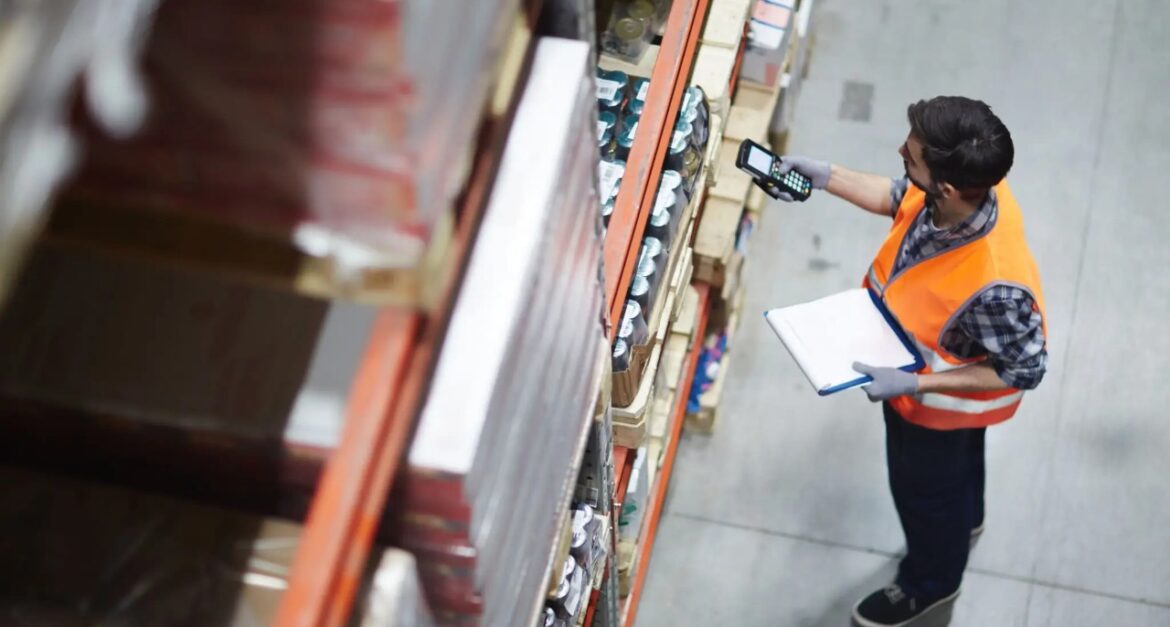
Introduction: Powering a Sustainable Future Through Smarter Imports
Saudi Arabia’s clean energy transformation is no longer a distant goal — it’s a living reality. From the vast NEOM Solar Dome to the Dumat Al Jandal Wind Farm, renewable projects are rapidly reshaping the Kingdom’s industrial and environmental landscape.
But behind every panel, turbine, and battery lies an often-overlooked backbone of success — accurate customs classification, SASO labeling, and efficient logistics clearance. For importers and logistics professionals, mastering renewable energy equipment HS codes is no longer just about compliance; it’s about accelerating Saudi Arabia’s Vision 2030 renewable energy mission.
At Palm Horizon KSA, we understand that speed, accuracy, and sustainability are inseparable in modern logistics. As an AEO-certified logistics partner, we help importers simplify every step — from HS code classification to SASO documentation — ensuring renewable energy shipments arrive on time and on target.
What Are HS Codes and Why They Matter in Renewable Imports
HS (Harmonized System) Codes are six-digit global identifiers assigned to traded goods under the World Customs Organization framework. In Saudi Arabia, these codes are enforced by ZATCA (Zakat, Tax, and Customs Authority) to classify imports, assign tariffs, and ensure conformity with national standards.
For renewable energy importers, correct HS classification determines:
- Customs duty rates and VAT exemptions under Vision 2030 sustainability programs.
- Eligibility for government subsidies and project tenders.
- Compliance with SASO energy labeling and Environmental Conformity Certificates (ECC).
- Access to AEO priority clearance benefits.
Mistakes in HS coding can result in shipment holds, fines, or project delays, which are critical risks for companies supplying high-value equipment like solar panels or lithium batteries.
HS Codes for Renewable Energy Equipment in Saudi Arabia
Understanding the correct HS code classification is crucial for renewable energy imports in KSA, especially when handling complex systems involving multiple electrical and structural components. Proper classification ensures smooth customs clearance, accurate tax assessment, and eligibility for Vision 2030 green-energy incentives.
| Equipment Type | HS Code | Description | Compliance / Notes |
| Solar Panels (Photovoltaic Modules) | 8541.40.10 | Solar cells assembled in modules or panels for electricity generation | SASO energy efficiency label mandatory |
| Solar Cells (Unassembled) | 8541.40.20 | Photovoltaic cells not assembled in modules | Used in local manufacturing and R&D |
| Solar Inverters (DC to AC Converters) | 8504.40.90 | Static converters for solar applications | SASO labeling and efficiency certificate required |
| Hybrid Inverters (PV + Battery Systems) | 8504.40.50 | Combined converters managing grid-tied and off-grid power | ECC environmental approval mandatory |
| Charge Controllers / MPPT Units | 8537.10.90 | Boards/panels for control or distribution of electricity | Used in off-grid and hybrid solar systems |
| Lithium-Ion Batteries | 8507.60.00 | Rechargeable lithium accumulators for solar and EV applications | Import permit and UN38.3 safety report required |
| Lead-Acid Batteries (Deep Cycle) | 8507.20.10 | Batteries used in off-grid renewable systems | Environmental conformity certificate (ECC) required |
| Energy Storage Systems (BESS) | 8507.20.00 | Other accumulators for hybrid and backup storage | ECC & SASO labeling mandatory |
| Wind Turbines (Complete Generating Sets) | 8502.31.00 | Wind-powered electric generating sets | SASO noise and performance standards apply |
| Wind Turbine Blades | 8412.90.20 | Rotor blades for wind turbine assemblies | Environmental and structural conformity reports required |
| Wind Turbine Towers | 7308.20.00 | Steel structures used for turbine mounting | ECC required for environmental impact |
| Transformers for Solar/Wind Plants | 8504.23.00 | Electrical transformers exceeding 10,000 kVA | SASO efficiency certification required |
| Cables and Connectors for PV Systems | 8544.42.90 | Insulated copper cables with fittings | Must meet IEC and SASO safety standards |
| Mounting & Racking Structures | 7308.90.90 | Steel or aluminum support frameworks for panels | ECC compliance and corrosion resistance certification |
Why These HS Codes Matter for Vision 2030 Projects
Each of these codes determines whether a shipment qualifies for:
- Reduced customs duty or VAT exemption under Vision 2030.
- Eligibility for renewable subsidy programs and investment licenses.
- Compliance verification through SASO’s online conformity platform.
- Fast-track clearance under AEO procedures via Palm Horizon KSA.
Incorrect HS code declarations can delay shipments by weeks and may result in reclassification penalties, especially for mixed cargo (e.g., solar kits including panels, inverters, and batteries).
Palm Horizon’s HS Code Expertise: Avoiding Delays Before They Happen
Palm Horizon KSA’s AEO-certified classification experts verify the HS code of every shipment before it arrives at the port. Our pre-import verification ensures:
- ✅ Precise classification aligned with ZATCA’s latest updates.
- ✅ Automatic SASO conformity documentation pairing.
- ✅ Optimized tariff codes for Vision 2030 renewable incentives.
- ✅ Harmonized digital filing with customs portals and freight platforms.
This approach eliminates costly misclassification errors — particularly for hybrid energy systems where multiple components fall under different HS chapters.
SASO & Environmental Compliance for Renewable Equipment
Compliance isn’t just bureaucracy — it’s the foundation of sustainable import operations in Saudi Arabia.
SASO Energy Efficiency Labeling
All imported renewable devices, especially solar modules and inverters, must display SASO’s official energy efficiency label, certifying adherence to national performance standards.
Import Permits for Lithium Batteries
Under ZATCA’s hazardous goods classification, lithium batteries (HS 8507.60.00) require:
- Pre-import permits from Civil Defense and Energy Ministry.
- Documentation for UN38.3 testing, confirming safe transport and handling.
Environmental Conformity Certificates (ECC)
Issued by SASO-approved laboratories, ECC ensures equipment meets eco-friendly lifecycle and disposal standards — a must for utility-scale solar farms and battery energy storage systems (BESS).
AEO Compliance Advantage
Authorized Economic Operator (AEO) importers benefit from:
- Priority inspection and clearance.
- Reduced physical checks.
- Faster digital documentation review through verified supply chain channels.
Deep Dive: Solar Panels (HS 8541.40.10)
The Backbone of KSA’s Renewable Revolution
Solar PV technology has become the face of Saudi Arabia’s energy diversification strategy. Projects like Sakaka PV Plant and Sudair Solar Park showcase how renewable infrastructure is redefining industrial energy consumption.
Import & Classification Essentials
HS Code 8541.40.10 covers all photovoltaic cells and assembled panels used for solar electricity generation.
Common Import Requirements:
- SASO efficiency label
- ECC certificate
- Country of origin declaration
- AEO-compliant customs clearance
Real-World Impact
Palm Horizon KSA provides end-to-end solar equipment logistics, managing large-scale shipments from ports like Jeddah Islamic Port to inland project sites in Riyadh and Tabuk, ensuring full customs visibility and document synchronization.
Deep Dive: Wind Turbines (HS 8502.31.00)
Harnessing the Wind for Vision 2030
The Dumat Al Jandal Wind Farm, producing 400 MW of power, is the largest operational wind project in the region. Wind energy equipment imports are governed by HS code 8502.31.00 — covering turbines, generators, and rotor assemblies.
Compliance Considerations:
- SASO quality test reports for mechanical stability.
- ECC for noise and environmental conformity.
- Customs alignment under renewable incentive programs.
Palm Horizon’s Edge:
Our AEO-backed process ensures turbine component clearance in record time, minimizing demurrage risks and port congestion during project construction windows.
Deep Dive: Solar Inverters (HS 8504.40.90)
Power Conversion with Compliance
Inverters are essential to convert DC output from solar panels into AC power suitable for grid or industrial use. Saudi Arabia mandates strict conformity on inverter imports under HS 8504.40.90.
SASO & AEO Requirements:
- SASO label validating conversion efficiency.
- ECC environmental approval for large-capacity systems.
- Import through AEO-certified logistics operators to reduce inspection delays.
Real Use Case:
Palm Horizon recently facilitated the rapid customs clearance of over 700 inverters for a NEOM green hydrogen substation project — processed under AEO fast-track within 72 hours.
Deep Dive: Energy Storage Batteries (HS 8507.60.00 / 8507.20.00)
The Future of Energy Stability
As Saudi Arabia expands its smart grid infrastructure, energy storage systems have become pivotal for stabilizing renewable energy supply. Lithium-ion and hybrid accumulators are classified under HS 8507.60.00 and 8507.20.00.
Regulatory Focus:
- Hazardous material compliance: Lithium batteries require special labeling and safety documentation.
- Temperature control and packaging per IATA regulations.
- Environmental conformity for end-of-life recycling.
Palm Horizon’s Solution:
Our team ensures safe handling and compliance with Civil Defense import protocols, offering temperature-regulated storage and bonded warehouse facilities for battery logistics in KSA.
Vision 2030 and Renewable Import Subsidies
Under Vision 2030, the Saudi government introduced import and investment incentives for renewable energy players, including:
- Zero customs duty on selected renewable components.
- Reduced VAT on approved energy projects.
- Priority customs clearance for certified importers.
- Financial subsidies for local assembly or green manufacturing partnerships.
Correct HS coding ensures your equipment qualifies for these benefits — a step Palm Horizon streamlines through expert classification and documentation audits.
Implementation Overview: How Palm Horizon Enables Seamless Renewable Imports
Palm Horizon KSA leverages its AEO status and extensive supply chain network to simplify renewable imports in three phases:
1. Pre-Import Advisory
- Verify HS codes (e.g., solar HS codes Saudi Arabia) for accuracy.
- Align with SASO standards and ECC documentation.
- Conduct risk assessment for lithium battery shipments.
2. Customs & Documentation Processing
- File digital declarations through ZATCA’s portal.
- Apply AEO identification for clearance priority.
- Integrate SASO, ECC, and safety files into customs entry.
3. End-to-End Delivery
- Secure port handling and warehousing for sensitive components.
- Road transport from Jeddah and Dammam ports to project zones.
- Final project-site delivery with live tracking.
Palm Horizon’s digital-first approach reduces customs friction, increases shipment visibility, and supports Saudi Arabia’s national renewable objectives.
Comparison: Saudi Arabia vs. Global Renewable Import Systems
| Country | Main Authority | HS Code Precision | Green Import Incentives | Customs Speed |
| Saudi Arabia | ZATCA + SASO | High | Vision 2030 | Very Fast (AEO) |
| UAE | ESMA | Moderate | Tax exemptions | Fast |
| Germany | EU Customs | Very High | Feed-in Tariffs | Medium |
| India | DGFT | Medium | Duty relief | Moderate |
Saudi Arabia’s AEO-based clearance makes it one of the most efficient countries in renewable logistics management across the GCC.
FAQs: Renewable Energy HS Codes & Compliance in Saudi Arabia
1. What are the key solar HS codes in Saudi Arabia?
The primary classification is HS 8541.40.10, covering all photovoltaic modules and solar cells imported for electricity generation.
2. Are lithium-ion batteries restricted in KSA imports?
Yes. Batteries under HS 8507.60.00 require safety certifications, import permits, and compliance with international regulations governing the transportation of hazardous materials.
3. Do SASO labels affect project subsidies?
Yes. Equipment without SASO approval may be disqualified from Vision 2030 renewable subsidies and can face clearance delays.
4. What’s the advantage of being AEO-certified for renewable imports?
AEO certification offers priority clearance, reduced inspections, and eligibility for fast-track customs processing.
5. How does Palm Horizon ensure compliance for renewable imports?
Palm Horizon verifies all HS codes, manages SASO and ECC documentation, and uses AEO fast-lane customs clearance to ensure projects stay on schedule.
Conclusion: Building a Greener Kingdom with Smarter Logistics
Saudi Arabia’s renewable vision isn’t just about generating power — it’s about empowering industries, communities, and future generations through sustainable progress.
Every solar panel cleared, every turbine installed, and every battery deployed is a step toward an energy-secure, sustainable Kingdom. But these steps require precision, compliance, and logistics intelligence — the exact strengths that Palm Horizon KSA delivers.
As a trusted logistics partner, Palm Horizon helps importers and developers navigate complex renewable energy HS codes, SASO certifications, and AEO customs frameworks — ensuring the renewable future arrives on time.
Partner with Palm Horizon KSA to power your next renewable project with compliance, clarity, and confidence.





